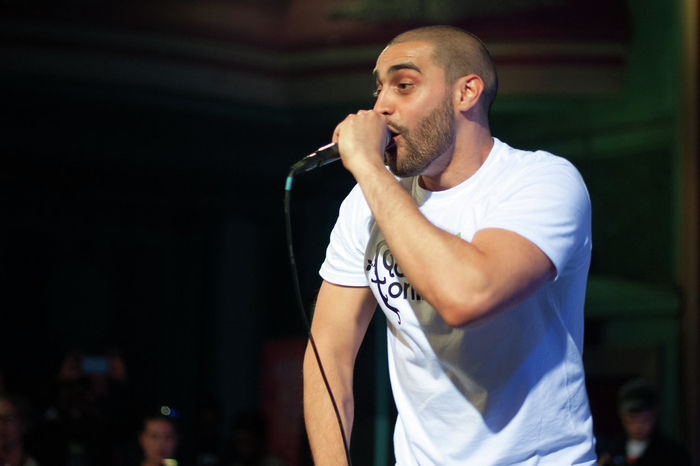SU criticises government decision to cut ties with NUS
The SU postgraduate president said the government’s disengagement with the NUS ‘sets a dangerous precedent’

The Student Union (SU) has criticised the government’s decision to cut ties with the National Union of Students (NUS) over complaints of antisemitism, saying the decision“sets a dangerous precedent” and is “not based on an evidential approach”.
Last Friday (13/5), Nadhim Zahawi, the education secretary, announced that the government would temporarily stop funding the NUS following concerns of antisemitism.
Zahawi said: “Jewish students need to have confidence that this is a body that represents them, and we need to be sure that the student bodies that we engage with are speaking fairly for all students”.
The decision came before the results of an independent investigation into complaints of antisemitism, launched by the NUS last month (13/4), are released.
SU postgraduate president Anjum Nahar told Varsity: “The government’s swift and wholesale disengagement from the NUS before the inquiry has been concluded is of concern to us, because it sets a dangerous precedent in terms of shutting student representatives out of key policy decision-making spaces as and when they see fit, and not on an evidenced-based approach.
“The outcome of the independent inquiry will determine the actions that Cambridge SU will take with regards to challenging antisemitism within the NUS.”
The SU previously welcomed the announcement of an investigation, though said the government and media were exploiting “genuine student concerns about anti-Semitism…to weaken student power and silence students of colour and those advocating for Palestinian rights” in calling for an investigation.
The Department for Education has said that the NUS will be replaced by alternative representatives for students, “to ensure all students’ views are reflected fairly”.
The NUS has faced several years of antisemitism allegations.
Much of the current controversy concerns the NUS’ decision in March to invite the controversial rapper Lowkey to their “liberation conference”.
The rapper had previously voiced support for 9/11 conspiracy theories, called Israel a “racist state”, and praised David Miller, a former Bristol professor fired for making allegedly antisemitic comments about students.
Lowkey’s invitation prompted backlash before he ultimately pulled out.
The NUS’s president-elect, Shaima Dallali, has also been accused of antisemitism.
In 2018 Dallali tweeted praise for Yusuf Al Quaradawi, a Muslim Brotherhood cleric who has previously asked God to kill Jews, and has been expelled from the UK, US, and France. She was also criticised for calling a preacher critical of Hamas a “dirty Zionist”, again on Twitter.
Both of these incidents led to significant criticism of the NUS.
The Union of Jewish Students said that the events had “left many Jewish students … feeling that NUS is not a safe place for them”.
Last month, the higher education minister, Michelle Donelan called on student unions to “consider disaffiliation, unless matters improve quickly”.
 Comment / Plastic pubs: the problem with Cambridge alehouses 5 January 2026
Comment / Plastic pubs: the problem with Cambridge alehouses 5 January 2026 News / Cambridge academics stand out in King’s 2026 Honours List2 January 2026
News / Cambridge academics stand out in King’s 2026 Honours List2 January 2026 News / Cambridge businesses concerned infrastructure delays will hurt growth5 January 2026
News / Cambridge businesses concerned infrastructure delays will hurt growth5 January 2026 News / AstraZeneca sues for £32 million over faulty construction at Cambridge Campus31 December 2025
News / AstraZeneca sues for £32 million over faulty construction at Cambridge Campus31 December 2025 Interviews / You don’t need to peak at Cambridge, says Robin Harding31 December 2025
Interviews / You don’t need to peak at Cambridge, says Robin Harding31 December 2025










